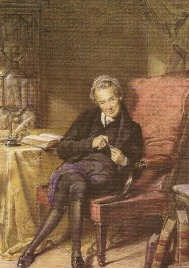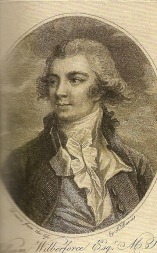Actions

Wilberforce took several critical actions along the pathway to the abolition of slavery.
Perhaps the first key decision made by Wilberforce was identifying abolishment of the slave trade as one of his two primary goals. This was a very unpopular cause, but Wilberforce’s faith gave him the moral courage to stand up for the oppressed, and his position as a member of Parliament gave him the position from which he could fight this battle.
Wilberforce also delivered several important speeches before the Parliament. He captivated his audience as an eloquent orator. Even those opposed to his cause were astounded by his clear and persuasive arguments. His first famous speech delivered to Parliament on May 12, 1789, described the horrors of the Middle Passage, the journey of the slaves aboard cramped ships from Africa across the Atlantic. He took responsibility for allowing the slave trade to continue under his authority, and graciously assumed others did not fully understand the brutality of the practice.
Wilberforce pushed continually for bills to abolish the slave trade. They were continually defeated, sometimes by wide margins and other times by heartbreakingly narrow margins. But Wilberforce continued on with his cause for 20 years.
Image from A Journey Through the Life of William Wilberforce.

All along he was also pursuing his second goal, “the reformation of manners,” or “making goodness fashionable.” He supported more than 70 separate philanthropic projects – from hospitals to art galleries to education for the blind and deaf. “It is the true duty of every man to promote the happiness of his fellow-creatures to the utmost of his power,” said Wilberforce. This commitment to doing good caught on in Britain and paved the way for the abolition movement.
The tide finally turned after Wilberforce’s close friend and ally William Pitt, died. Replacing him as prime minister was Lord Grenville, who strongly opposed the slave trade and gave new momentum to the abolition movement. At 4 a.m. on February 23, 1807 the vote was cast: 283 for, 16 against. Finally, Wilberforce’s conviction and compassion had been rewarded.
“Well, Henry, what shall we abolish next?” Wilberforce said to Henry Thornton the night the abolition bill was passed.
Image from A Journey Through the Life of William Wilberforce.
Dr. Cawthon's Perspective on the Impact that Wilberforce had on the Abolishment of Slavery
|
| ||||||